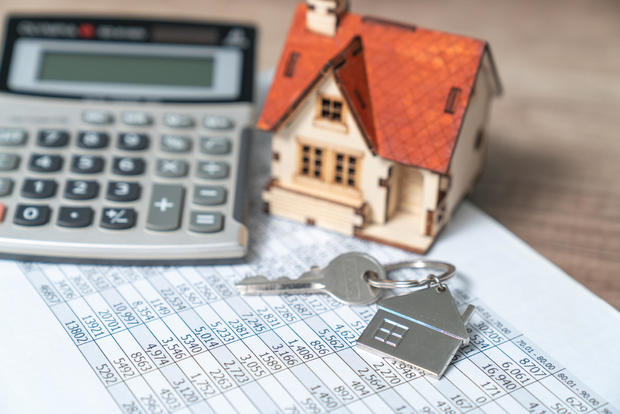What are mortgage points and how can you buy them?
Shopping around for a mortgage can be more than a little confusing. With all the variables to consider and industry lingo to learn, it's almost like the home buying process was designed to leave you scratching your head.
Like with any complicated topic, it's best to take things one at a time. The concept of "points" on a mortgage, for example, is multi-faceted. But in the current mortgage rate environment, it could be something a purchaser is seriously considering.
Mortgage rates hit record lows during the pandemic but have since risen as part of an effort to tame decades-high inflation. If you're currently looking for a home or ready to apply for a mortgage, you should know what your interest rate options are.
Read on to discover what mortgage points are, how to buy them and when they can actually save you money.
What are mortgage points?
When you take out a mortgage, the lender will assign an interest rate based on the loan term, loan amount, down payment, credit score of the borrower, the income of the borrower and other factors. If you want a lower interest rate to reduce your monthly payments, you can buy points. Essentially, this means that you'll wind up paying a lump sum in exchange for a lower interest rate.
You can buy points when you initially take out a mortgage or when you refinance into a new loan.
Each point is generally worth .25% of the interest rate. For example, let's say you qualify for a 5.5% interest rate. Buying one point could let you get a 5.25% interest rate.
Each point usually costs about 1% of the loan amount. If you have a $200,000 mortgage, each point would cost $2,000. However, each lender is allowed to set its own prices for points. If you're interested in buying points, make sure to look at rates and points from multiple lenders to ensure you're getting the best deal.
How to buy points
There are two ways you can buy points: upfront in cash or by having the cost added to the total mortgage. Paying for points upfront can be expensive, depending on the total loan amount and the number of points you're buying.
If you roll over the points cost into the mortgage, then you're effectively paying interest on the points. This will also increase the break-even point. And if you end up increasing the loan-to-value ratio too much, you may wind up getting a higher interest rate than if you paid for points up front.
With all of this being considered, it may still be worth it to purchase mortgage points. But first, do the math to confirm the potential benefits. A mortgage calculator can help you determine the best path forward.
When is it worth buying points?
If you're planning on keeping the mortgage for at least five years, then buying points may save you money in the long term. But if this is just a starter home or if you plan to refinance in the next few years, then buying points may not make sense for you.
"It doesn't matter how long you think you're going to stay in the house," said mortgage broker Casey Fleming, author of "The Loan Guide: How to Get the Best Possible Mortgage." "What matters is how long you're going to keep the loan."
It makes more sense to buy points when interest rates are already low and unlikely to drop much further. In that case, you can lock in an extremely low rate without having to refinance in the future.
However, if interest rates are high, Fleming says you should avoid buying points and wait to refinance when rates drop.
If you're putting down less than 20%, it usually makes more sense to increase your down payment instead of buying points. Increasing your down payment will reduce how much private mortgage insurance (PMI) you pay. It may also decrease the interest rate, so it will have the same effect as buying points.
As for borrowers who are unsure of how long they're going to keep the mortgage? They may want to avoid buying points, just in case they end up moving or refinancing.
Have more mortgage point questions? Explore your options now and lock in a low rate.




